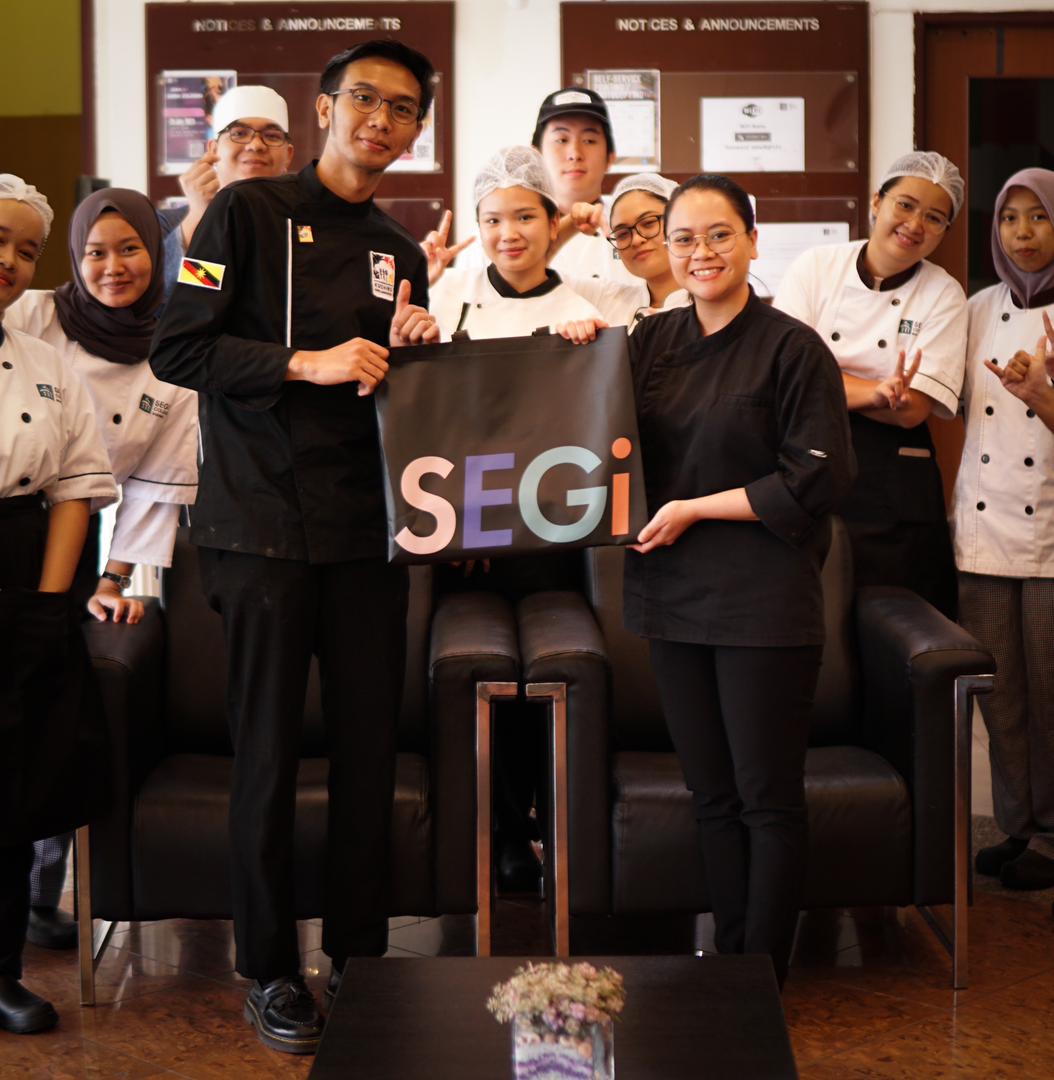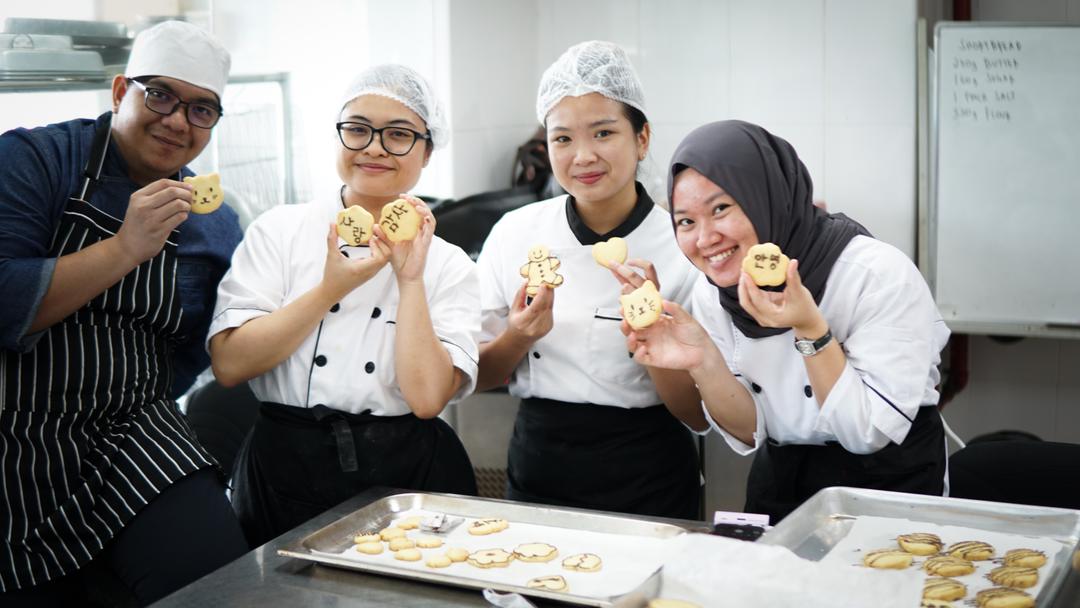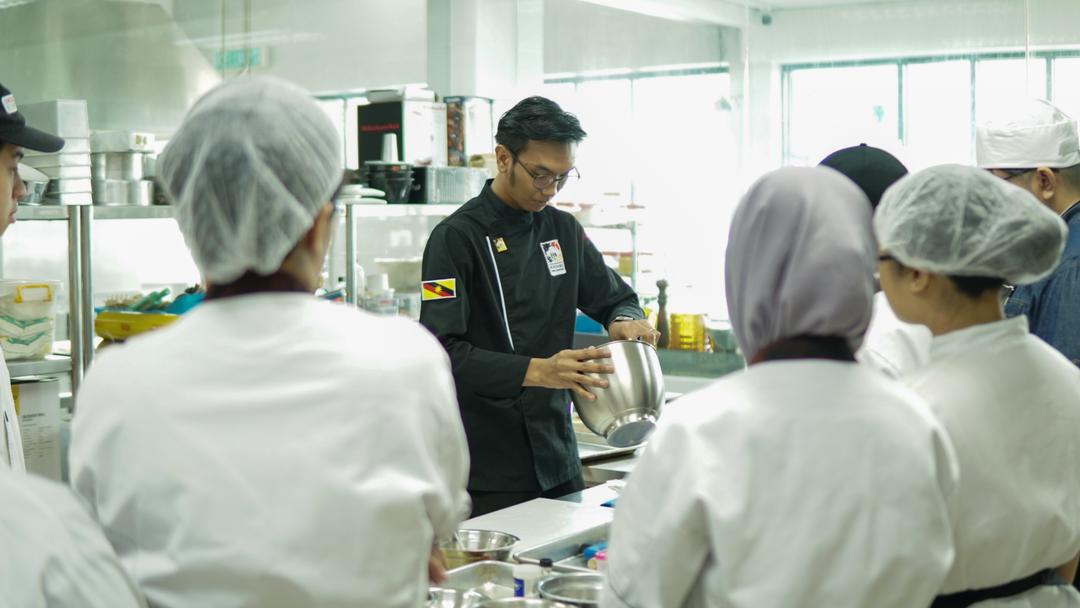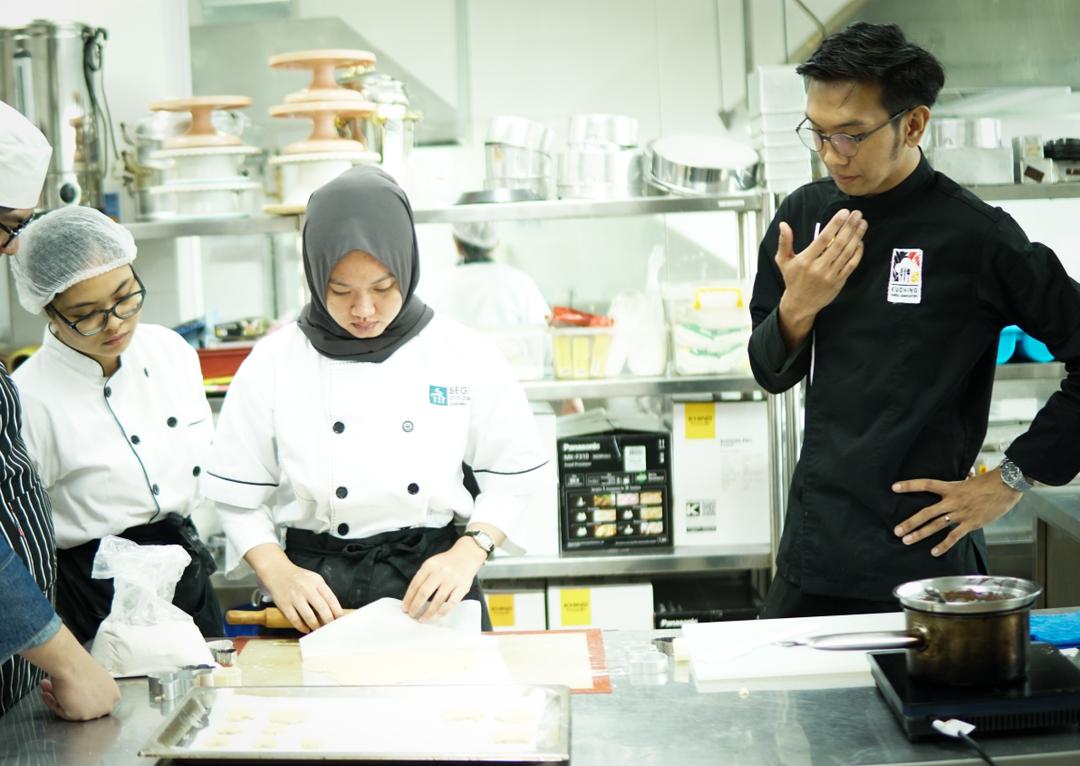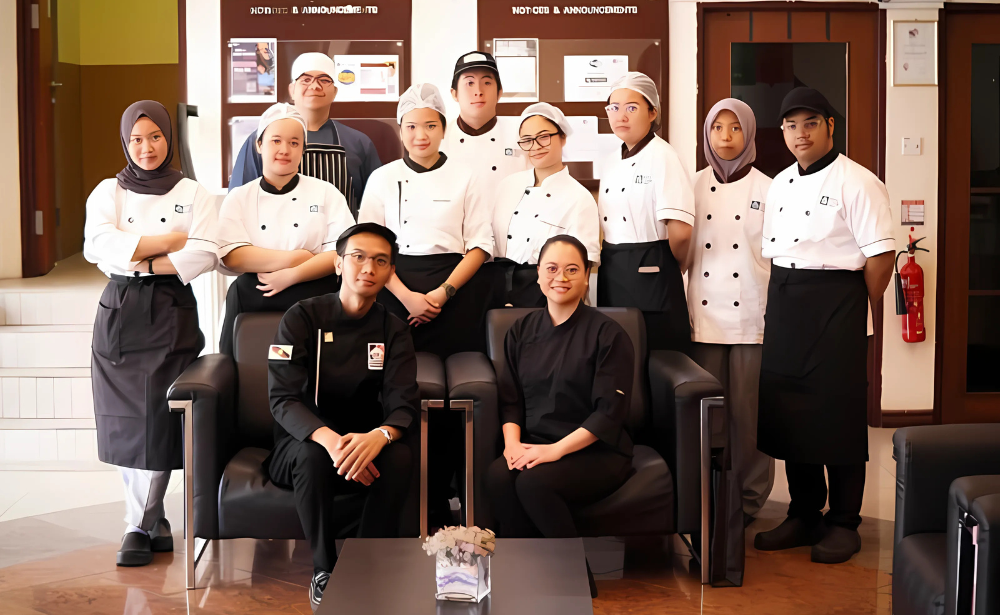SEGi recently brought the industry into the classroom with an immersive pastry-making session led by professional chef Mohd Asrifan from the Borneo Convention Centre Kuching. Held on 25 July 2025, the hands-on workshop was part of SEGi’s commitment to equipping students with practical, career-ready skills that reflect real-world industry expectations—aligning with global efforts to raise the bar on education and economic growth.
A total of 35 students from the Introduction to Baking and Pastry subject were given front-row seats to a live demonstration on shortbread and soft cookie preparation, complete with in-depth explanations on ingredient functions, baking science, and culinary techniques. The workshop forms part of SEGi College Sarawak’s long-term strategy to support the United Nations Sustainable Development Goals, particularly SDG 4 (Quality Education) and SDG 8 (Decent Work and Economic Growth), by integrating skill-based learning with strong industry partnerships.
According to UNESCO, over 600 million youth worldwide are not on track to acquire basic skills by 2030. Initiatives like SEGi’s “Industry Into Classroom” programme aim to close that gap by ensuring students aren’t just educated—they’re empowered. Chef Asrifan’s session did just that. He shared his journey from hot kitchen line cook to pastry specialist, offering valuable insights into the discipline, adaptability, and creativity required to thrive in the competitive culinary landscape.
Students responded with enthusiasm, asking thoughtful questions about the evolving expectations of pastry chefs, the impact of competitions on career growth, and how to remain relevant in an increasingly globalised food industry. The session didn’t stop at demonstration. Under the chef’s guidance, students donned their aprons for a hands-on baking experience—turning theory into skill with immediate feedback.
The World Economic Forum has repeatedly emphasised the growing demand for skilled workers in hospitality, particularly in Asia-Pacific where the industry is projected to grow 6.2% annually through 2028. With Malaysia’s own tourism and food service sectors bouncing back rapidly, culinary graduates with real-world experience stand at a strategic advantage.
SEGi continues to prioritise teaching that goes beyond textbooks, focusing on graduate employability, industry relevance, and global standards of excellence. By creating direct channels for students to learn from active professionals, the institution ensures its learners are future-ready and purpose-driven.
This event is organised in support of the following United Nations Sustainable Development Goals (SDG):
SDG 4: Quality Education
SDG 8: Decent Work and Economic Growth
SDG 17: Partnerships for the Goals
